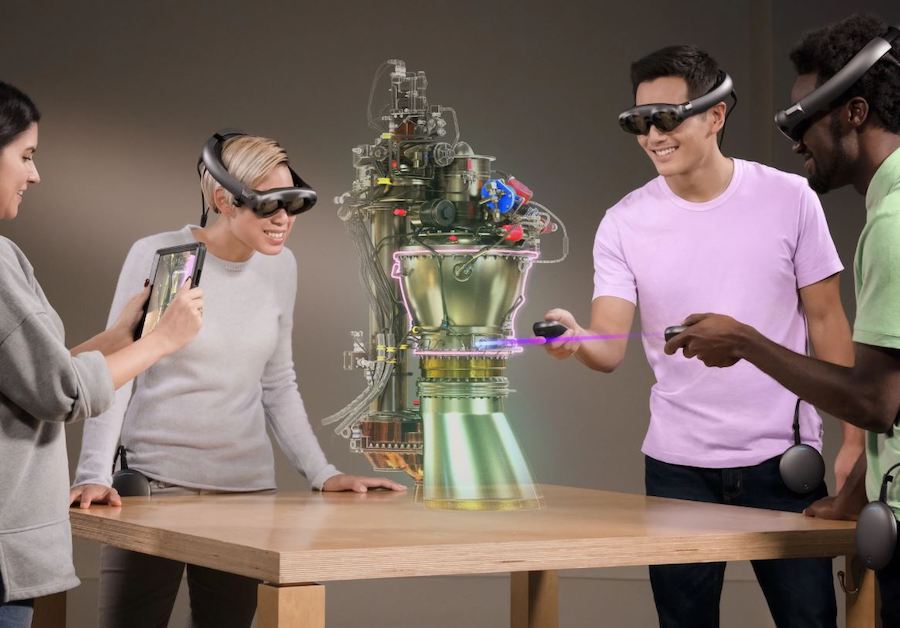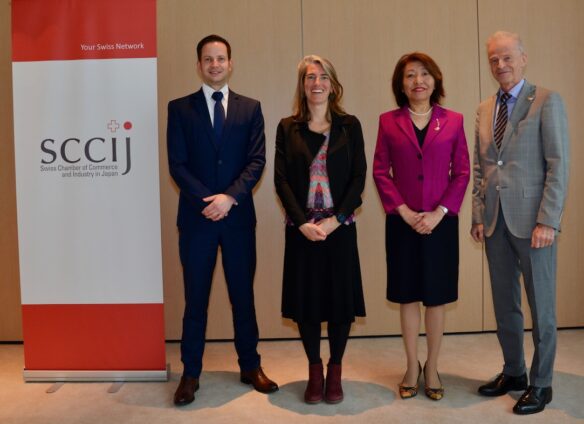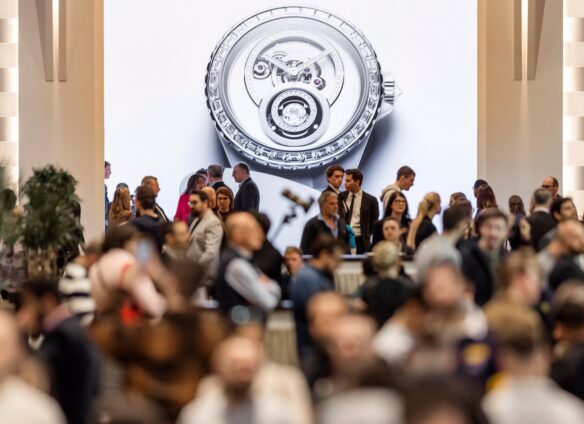Tokyo (SCCIJ) – Switzerland is playing a key role in building the so-called metaverse, the internet-accessed digital duplicate of the physical world. Microsoft, Facebook, Google, Disney Research and Magic Leap have all opened offices or research laboratories in Zurich, Switzerland’s economic capital.

Making mixed reality and robots interact: still photo from a demo video of Mixed Reality & AI Zurich Lab (© MagicLeap).
Digital avatars
Meta (formerly Facebook) is hiring 150 new staff in Zurich to work on immersive worlds. A significant share of Google’s 4,000 Zurich-based employees is also working on the metaverse. The augmented reality specialist Magic Leap has been regularly expanding its research and development team in Zurich.
The research at Disney Research Zurich (DRZ) focuses on modeling the human face. In particular, Disney Research has developed a high-quality camera for capturing facial expressions to create a digital avatar. It has also announced the development of a virtual reality application that features a range of sensations and embodied haptic experiences, such as feeling the rain in a virtual environment.
“The tech giants attract a large share of the brains trained at the Swiss Federal Institute of Technology Zurich (ETH Zurich), but also at the Swiss Federal Institute of Technology Lausanne (EPFL),” confirms Ronan Boulic, a lecturer and researcher at EPFL and a virtual reality specialist. “The EPFL imaging center, which sparks collaboration between several laboratories, has also gained international renown,” he adds.
Swiss know-how
Microsoft, for its part, has created Mixed Reality & AI Zurich Lab, a 25-person laboratory dedicated to basic and applied research in the field of computer vision for use in virtual and augmented reality settings. Professor Marc Pollefeys heads this lab while continuing to teach computer science at ETH Zurich. He is studying the various applications of Microsoft’s augmented reality headset HoloLens and is developing the device’s ability to map its surroundings in 3D and recognize objects around it.
“Switzerland is at the forefront of such innovations, with Zurich becoming a global hub,” says Pollefeys. “We synchronize virtual objects and digital information with the real world. Currently, the applications are mainly for industry and the workplace,” he explains. For example, a technician could service a machine without a manual, thanks to the instructions displayed on his mixed reality headset and the involvement of experts. “Part of our team is also working on telepresence via avatars,” Pollefeys adds.
Some Swiss companies are developing technologies that could improve the hardware components involved, miniaturizing the necessary glasses or making them more user-friendly. Other companies are involved in building the various platforms that promise social interactions without having to go anywhere, for example, when organizing a business meeting, attending a class, or walking around a shop.
Text: Ghislaine Bloch/Bilan via House of Switzerland





























